The latest survey of public opinion about the conflict in Ukraine presents a paradox. On the one hand, Americans say that they want President Biden to get tougher with Russia. On the other hand, their views about specific policies precisely track with the administration’s stance. Americans want the administration to do what the administration is already doing, and they do not want the administration to take the additional steps that it has already rejected.
For example, more than six in ten Americans favor imposing sanctions on Russia, providing financial aid to Ukraine, and sending weapons to Ukrainian forces. And by 52 to 19%, they support sending more American troops to bolster the defense of our NATO allies.
But Americans draw a bright line between these measures and policies that risk a direct confrontation between the United States and Russia. Just 33% support sending American troops to “help” the Ukrainians, and only 16% want our troops to be fighting by their side. By a margin of 21 to 52%, they reject shooting down Russia planes, and consistent with this stance, they oppose enforcing a no-fly zone in Ukrainian airspace.
Americans are also leery of non-military measures such as launching cyber attacks against Russia, presumably because they fear Russian retaliation against our information infrastructure, and flatly reject efforts to foment a coup against Vladimir Putin.
Americans are willing to confront the Russians diplomatically, however, and they reject the steps some have urged as ways of mollifying the Russians and ending their invasion of Ukraine. Only one in five Americans think that the US should promise Russia that Ukraine will never join NATO; just 14% say that we should roll back our troop deployments in Eastern Europe. And in a near-unanimous rejection of a Russian “sphere of influence,” only 8% think that Russia should be allowed to exert more power over the now-independent states of the former Soviet Union.
Furthermore, Russia’s invasion of Ukraine has transformed Americans’ understanding of the international scene. 58% now regard Russia as an enemy, compared to 37% for China, and 44% see Russia as an immediate threat, versus 33% for China. More than six in ten view the chances of a new Cold War as higher than they were five years ago, and more than half see a greater chance of nuclear war.
With his decision to invade Ukraine, Vladimir Putin has managed to unify a polarized American people against him, his policies, and his country. In a survey released on March 30, the Pew Research Center found only 6% of Americans expressing confidence in the Russian president to do the right thing in international affairs—the lowest figure ever recorded for any world leader. The question now is whether the Biden administration can transform bipartisan antipathy to Russia into a new international stance that enjoys the support across party lines on which presidents could rely during the Cold War.
The Brookings Institution is committed to quality, independence, and impact.
We are supported by a diverse array of funders. In line with our values and policies, each Brookings publication represents the sole views of its author(s).
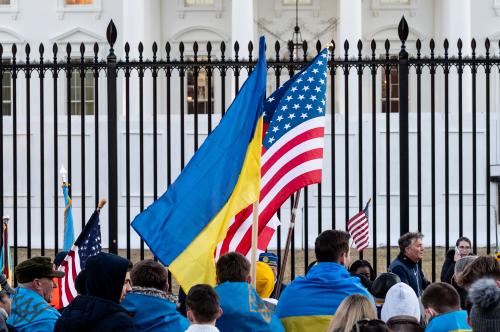
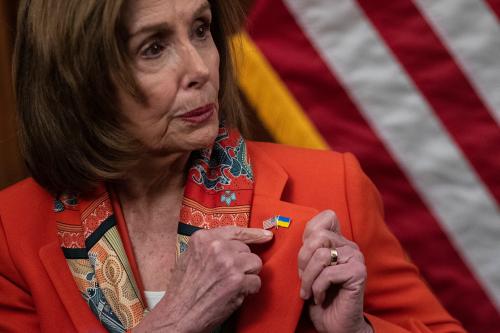
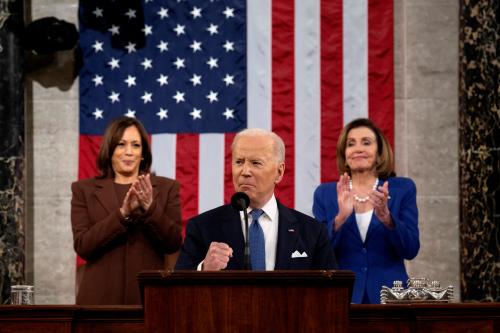

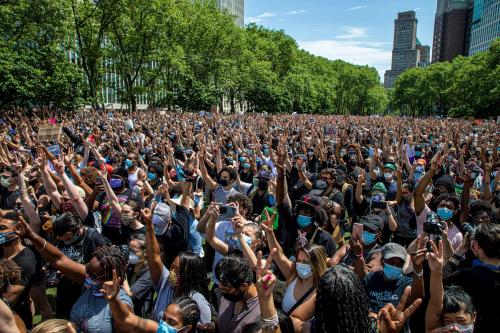
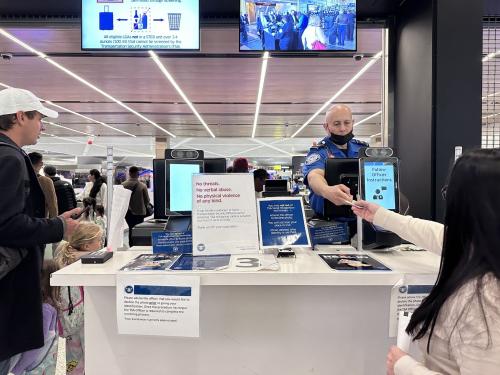

Commentary
The American people’s message to President Biden about Ukraine—get tougher but don’t risk war with Russia
April 1, 2022